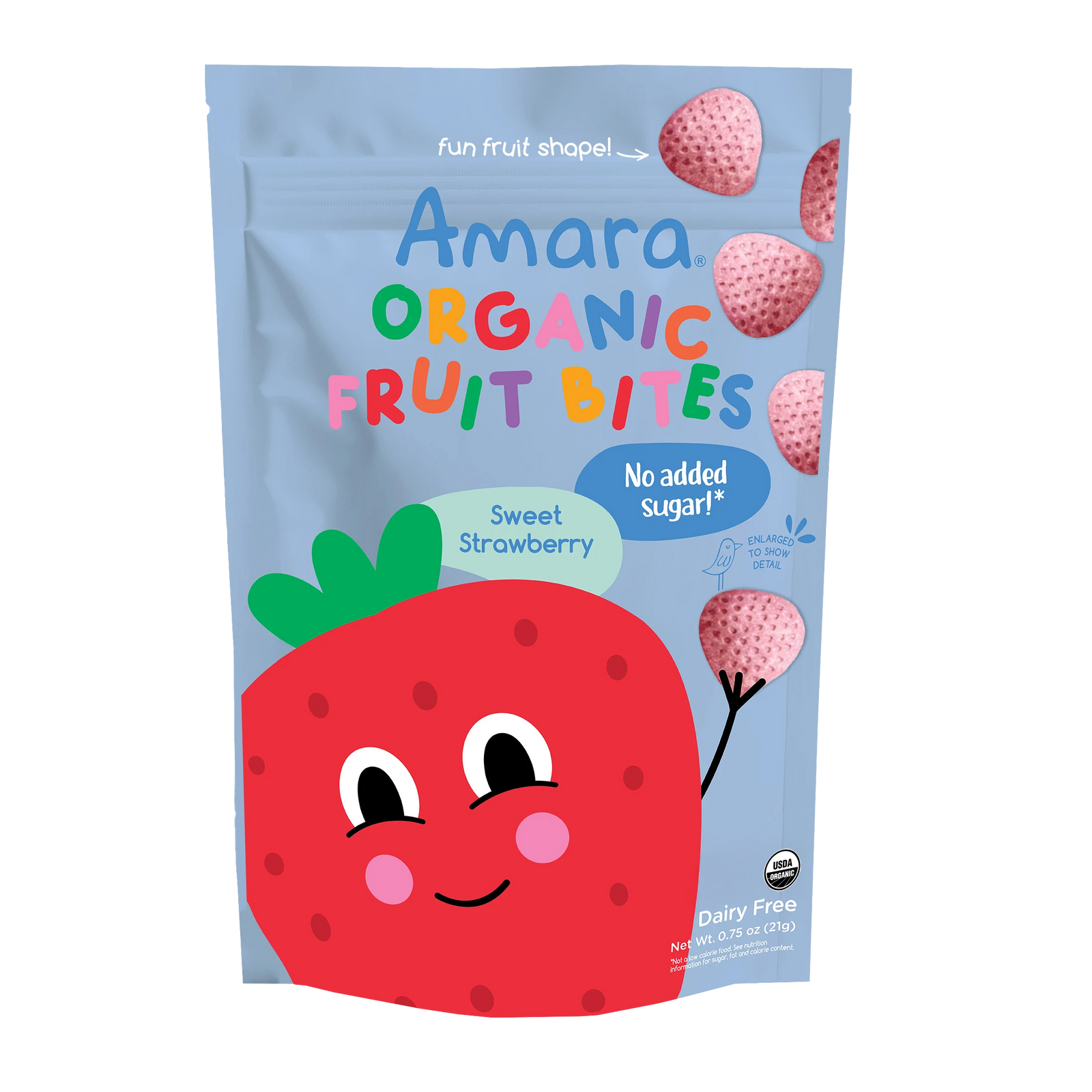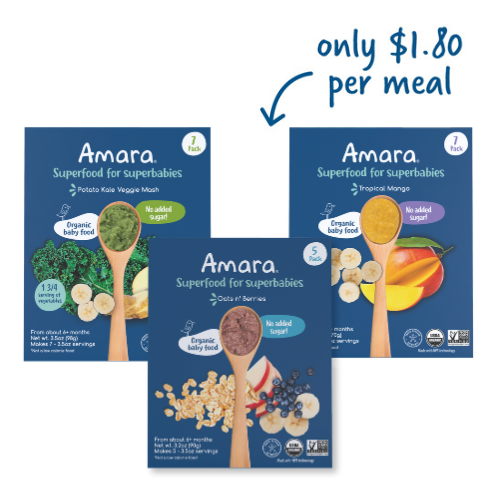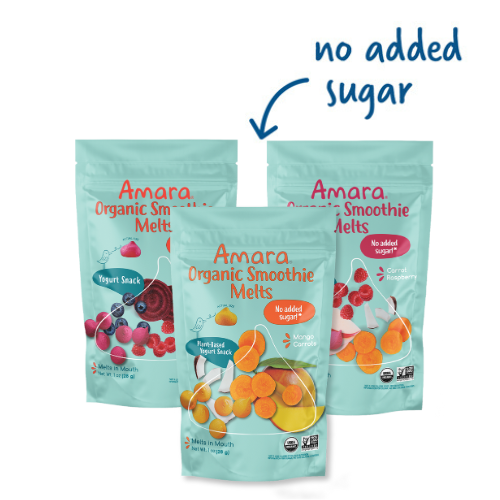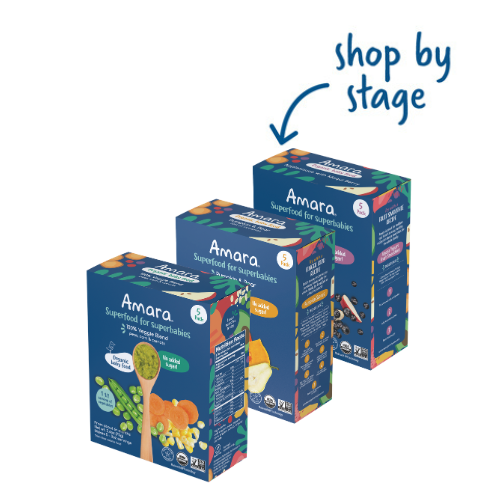Food Allergies in Babies
A major concern of parents is their baby developing a food allergy. Dealing with a food allergy can be a life-long complication, and no parent wants to feel like they could have prevented one in their baby. Allergies are caused by an overreaction of the immune system to some substance. It can be very minor to fatal, depending on the severity of the allergy. While deaths from food allergiesare quite rare thanks to modern medicine, allergies are a source of worry and anxiety for parents about their baby's safety. Parents of children with severe allergies have to be vigilant about where food comes from and often have a hard time finding reliable information about a food’s safety.
Once a food allergy develops, the only way to avoid a reaction is to avoid the food. And while sometimes you can outgrow a childhood food allergy, such as soy allergies by around the age of seven, many of them are for life. And their prevalence is increasing. Studies are showing that food allergies pop up more in industrialized countries and they are more common in children than adults.They’ve also been increasing over the past two to three decades, and it doesn’t seem to be due to an increase in awareness about the problem. We don’t know what’s causing the increase, though there are some intriguing theories.
Facts About Food Allergies & Babies
So here’s what some of the latest studies and scientific bodies have said about food allergies. Let’s start withthe CDC andthe FDA:
* 50 Million Americans suffer from allergies, and they are the 6th leading cause of chronic illness (all allergies combined)
* about 4% of adults and 5% of children under the age of 5 years suffer from a food allergy. The numbers have increased dramatically since 1997 for unknown reasons.
* The most common allergenic foods are milk, eggs, fish, shellfish, tree nuts, peanuts, wheat, and soybeans. 90% of all food allergies come from these sources. However, there have been more than 160 foods that have been identified to cause allergies in sensitive individuals.
What Causes A Food Allergy in Babies?
One risk factor for developing an allergy is family history. A child is more likely to develop an allergy if both parents have allergies. And they are more likely to have an allergy if one parent has an allergy opposed to neither. Also, a child is more likely to develop a second allergy if they already have one.
There have been lots of theories about what will cause a food allergy in a child, and they can be conflicting. Earlier recommendations suggested that complete avoidance until a child’s immune system is more developed is best. Nowadays the suggestions favor introducing typical allergenic foods early so the body gets used to it.
Some say that it’s the mother’s diet that causes allergies. While it is true that the mother’s diet is the earliest possible nutritional influence on an infant, studies have not supported a protective effect by restricting a pregnant woman’s diet. Additionally, breastfeeding seems to have a beneficial effect for preventing certain allergies if it is done for at least the first four months of life.
On the other hand, exclusively breastfeeding for too long may put a child at risk for some nutritional needs. It may also cause allergies in high-risk infants. This isn’t because of the breast milk, but because of a lack of exposure to allergenic foods. The theory is that there’s a window where allergenic foods introduced at the right time will lower the chances of allergy later. A study on peanuts supports this.
Peanut Allergies and Your Baby
Peanut allergy is a big concern because cases of peanut allergy are growing rapidly, even tripling in the United States. This kind of allergy is rarely outgrown and often develops early in life. About 1%-3% of children in westernized countries have a peanut allergy.
But a study called the LEAP trial, done in 2015, suggests that one of the causes is too much avoidance. 640 high-risk UK infants were divided into groups. One group would completely avoid all peanut products until the age of five. The other group would consume peanuts at least three times a week. None of the children had a severe pre-existing peanut allergy, though some had a mild reaction.
At the age of five years, the children were tested again for peanut allergy. The results were stark. 13.7% of the children who didn’t eat peanuts got a peanut allergy. Only 1.9% of the consumption group did. Of those who already had a reaction as an infant, over a third of them got a peanut allergy, while 10.6% of the consumption group got one.
This shows that avoidance, at least for peanuts, may not be the best strategy for parents to follow. However, more studies need to be done for other allergenic foods. While it was standard advice over a decade ago to avoid allergy-causing foods until around 2-3 years of age, now the American Academy of Pediatricians recommends that allergenic foods can be introduced at 4-6 months, the usual age of solid food introduction. However, cow’s milk should be restricted until the child is one year old.
Are There Other Causes of Baby Food Allergies?
There have been other things that are hypothesized to make food allergies more common. Too much soap, pets, gut flora, and a lack of vitamin D are all under investigation. An observational study in Iceland from 2017 shows that early supplementation (before 6 months) of fish oil may protect against food allergies.
Gut flora is also a promising route of investigation. It’s already been shown that there can be significant differences in gut flora between allergic and non-allergic children. However, the studies on gut flora are too new to make clinical recommendations about using pro- or pre-biotics. The other hypotheses also haven’t yielded a clear decision one way or the other yet. However, a cesarean section birth has been considered a risk factor for developing an allergy. Babies geta strong dose of bacteria as they exit the birth canal and cesarean section bypasses this process. It is theorized that these bacteria have a protective effect against allergies.
Since food allergies are a growing problem, this is a popular area of study for scientists. We all can agree it is heartbreaking to see a child suffer from rashes and wheezing or worse due to these allergies. Perhaps one day we will find a way to cure food allergies and put parents’ minds to rest. But until then, parents should do what they can to protect their children with what we do know. Breastfeed early in life and introduce allergenic foods gently at the normal stage of solid foods to let their bodies adapt.
We Know Baby Food
Looking for the best organic baby food on the market?We're it! Voted Best New Baby Food by the Bump and trusted by thousands of moms looking for less sugar and less process. Amara baby food has 1/3 less natural sugar (no added sugar of course!!!) than leading brands AND our proprietary technology uses pressure instead of high heat to lock in the nutrition, texture and taste of fresh organic whole foods. just add breast milk, water, or formula, and serve! Shop our popular Introduction to Solidsand Introduction to Textures Variety Packs.
 .
.








Leave A Comment